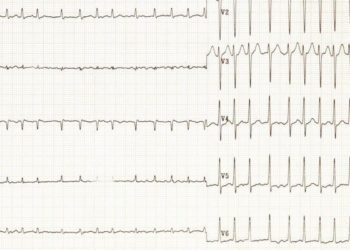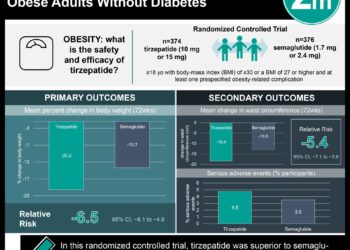Novo Nordisk’s Rybelsus demonstrates reduction in cardiovascular events for patients with Type 2 diabetes and cardiovascular disease
- Rybelsus in combination with standard T2DM therapy reduced the risk of major cardiovascular events by 14% in patients with diabetes and comorbid cardiovascular disease.
- Rybelsus demonstrates similar safety and tolerability in patients with comorbid diabetes and cardiovascular disease as previous oral semaglutide trials.
The Latest
Rybelsus (oral semaglutide) was approved by the FDA in 2019 to treat type 2 diabetes mellitus (T2DM). Recently, researchers at Novo Nordisk conducted a phase 3, randomized, double-blind clinical trial to investigate the efficacy of Rybelsus as an adjunct to standard therapy in the management of diabetes and comorbid cardiovascular disease. The primary outcome of the SOUL trial was the occurrence of major adverse cardiovascular events (MACE), which includes cardiovascular-related death, nonfatal myocardial infarction, or stroke. This outcome was achieved with a statistically significant 14% risk reduction of MACEs in patients receiving Rybelsus.
Physician’s Perspective
DM is an increasingly common metabolic disorder, estimated to affect 1 in 10 Americans. Approximately 90% of patients with diabetes have Type 2 DM, a condition in which the body fails to respond appropriately to insulin. Insulin is necessary to move sugar from the blood into cells so that it can be used by the body. When the body becomes resistant to insulin, blood sugar becomes abnormally high resulting in T2DM. High blood sugar, known as hyperglycemia, has many damaging effects including increased risk of heart disease and nerve, eye and kidney damage. Diabetes medications aim to reduce hyperglycemia, and there are many classes of medications that have varying mechanisms of action to lower blood sugar levels. These include biguanides such as metformin, SGLT2 inhibitors, and GLP1 agonists like Rybelsus. The ability of these antihyperglycemics to reduce the risk of complications is important to consider particularly in patients with comorbid conditions such as heart or kidney disease, as they are at a higher risk of complications. The SOUL trial results show that Rybelsus has cardiovascular benefits in addition to providing glycemic control and may prove to be an additional agent in the therapeutic arsenal in the management of T2DM and its comorbidities.
Molecular Targets
Rybelsus, an oral semaglutide, is a glucagon-like peptide 1 (GLP-1) receptor agonist, which means it binds to GLP-1 receptors throughout the body to increase their activity. GLP-1 receptor activation stimulates the pancreas to release more insulin, which reduces blood glucose levels. Additionally, it reduces glucagon (another hormone) production to prevent additional glucose from entering the bloodstream. GLP-1 activation also slows gastric emptying, prolonging digestion, increasing satiety, and reducing appetite. Activation of GLP-1 receptors in the brain may also contribute to reduced hunger cravings and appetite. All these actions reduce blood glucose levels and promote weight loss to help control diabetes and reduce the risk of associated complications like MACEs.
Company History
Rybelsus was developed by Novo Nordisk which is well known for its diabetes and obesity medications. In addition to Rybelsus, Novo Nordisk has manufactured injectable semaglutides Ozempic and Wegovy, for diabetes and obesity, respectively, which have also demonstrated cardiovascular benefits. In the SUSTAIN 6 trial, Ozempic lowered the risk of cardiovascular events in patients with type 2 diabetes by 26% compared to placebo. In the 3 SELECT trial Wegovy reduced the risk by 20% in non-diabetic patients with heart disease and obesity.
Further reading: https://pubmed.ncbi.nlm.nih.gov/36945734/
©2024 2 Minute Medicine, Inc. All rights reserved. No works may be reproduced without expressed written consent from 2 Minute Medicine, Inc. Inquire about licensing here. No article should be construed as medical advice and is not intended as such by the authors or by 2 Minute Medicine, Inc.







